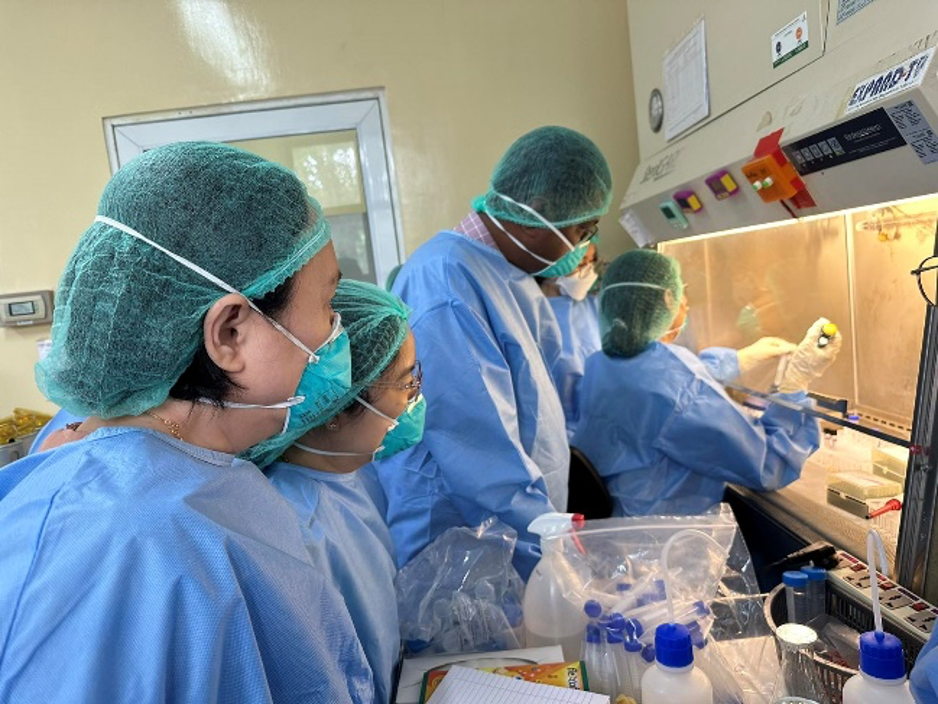Context:
India is preparing to implement the BPaLM regimen for drug-resistant tuberculosis (TB) following the World Health Organization’s (WHO) recommendation nearly two years ago.
More on the news:
- WHO recommended the use of the novel oral regimen for drug-resistant tuberculosis (TB), which offers better, faster treatment outcomes and improves patients’ quality of life.
- India is set to roll out training of healthcare professionals in administering this treatment.
What is the BPaLM regimen?
- It is consisting bedaquiline, pretomanid, linezolid and moxifloxacin (BPaLM) for treating multi-drug-resistant (MDR) or rifampicin-resistant tuberculosis (RR-TB).
Rifampicin, one of the most important first-line anti-TB drugs.
- Currently, TB patients in about 40 countries have access to this new regimen.
- The BPaLM protocol is more effective and has a shorter treatment duration of 6 months than the prevalent 18-24 months.
- According to the WHO report, India accounts for 27 percent of global TB cases, and is expected to benefit from this in the coming times.
How BPaLM will benefit the National TB Elimination Programme (NTEP)?
- This move is expected to boost the country’s National TB Elimination Programme, which aims to eliminate the TB disease by 2025.
- A study coordinated by the Indian Council of Medical Research (ICMR) and the National Institute for Research on Tuberculosis, Chennai, has shown a cure rate of over 90 percent.
- The mortality rate, which usually ranges from 14 to 17% coming down to around 3 to 4%.
Tuberculosis (TB):
- TB is an airborne bacterial infection disease caused by a bacterium called Mycobacterium tuberculosis.
- TB bacteria primarily affects the lungs, although other organs and tissues may be involved.
- Mode of transmission: Airborne- through coughing, sneezing or spitting.
- High-risk groups: People with weak immunity like those infected with HIV, Under-nutrition, Diabetes, Smoking and Alcohol consumption.
- World TB Day, on March 24, commemorates Dr. Robert Koch’s discovery of Mycobacterium tuberculosis in 1882.
Prevention of TB:
- It involves screening those at high risk, early detection and treatment of cases and vaccination with the Bacillus Calmette-Guérin (BCG) vaccine.
- Treatment of TB requires the use of multiple antibiotics over a long period of time.
Multidrug-resistant TB (MDR TB)
- MDR TB disease is caused by TB bacteria that are resistant to at least isoniazid and rifampin, the most effective first-line TB treatment drugs.
Current Status of TB:

- Every day, 3,500 people around the world lose their lives to TB, and around 30,000 people become infected with TB bacilli, according to World Health Organization (WHO) estimates.
- About 1.8 billion people, or one-quarter of the world’s population, are infected with tuberculosis but most of these people have latent TB.
- About 10 million people have active TB worldwide.
- About half of all TB cases globally are found in eight countries: Bangladesh, China, India, Indonesia, Nigeria, Pakistan, the Philippines, and South Africa.
- India tops the list of 20 TB high-burden countries in the world. India alone accounts for 27% of global TB cases followed by Indonesia (10%).
Government Initiative to curb TB:
The National Tuberculosis Elimination Programme (NTEP): It is a flagship program of the National Health Mission (NHM) of India that provides technical and managerial leadership for anti-tuberculosis (TB) activities in the country.
- The program’s goal is to eliminate TB in India by 2025, which is five years before the Sustainable Development Goals.
- The program was previously known as the Revised National Tuberculosis Control Programme, which was started in 1962. In 2020, the Central TB Division of the Government of India changed the name to NTEP.
- NTEP is a centrally sponsored scheme under the NHM, with the Central Government and State Governments sharing resources.
- Ni-kshay Poshan Yojana: This scheme launched in 2018, part of the NTEP, provides financial support to TB patients to help with their nutritional needs.
- Pradhan Mantri TB Mukt Bharat Abhiyan: it is an initiative of Ministry of Health and Family Welfare (MOHFW) to accelerate the country’s progress towards TB elimination by 2025.
- TB Mukt Panchayat: This initiative was launched in March 2023 to end TB by 2025. It aims to empower communities to create a movement to end TB, strengthen end TB activities, and prioritize health.

